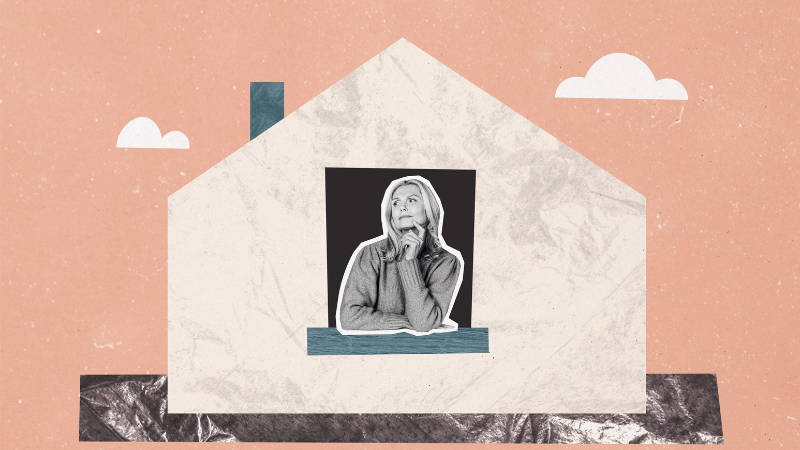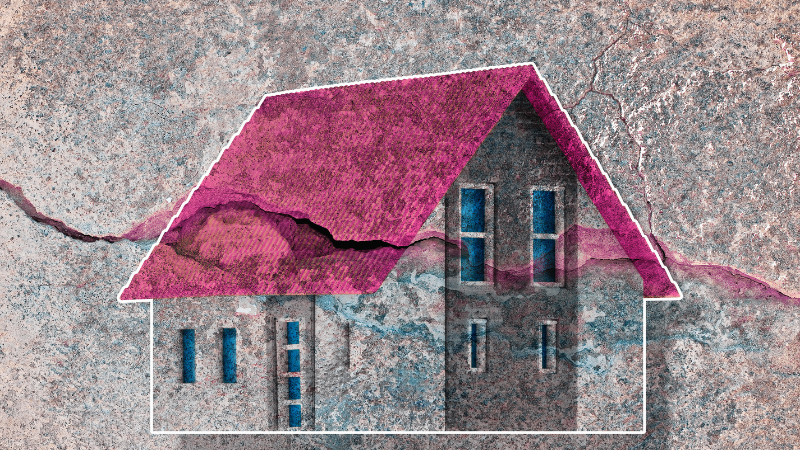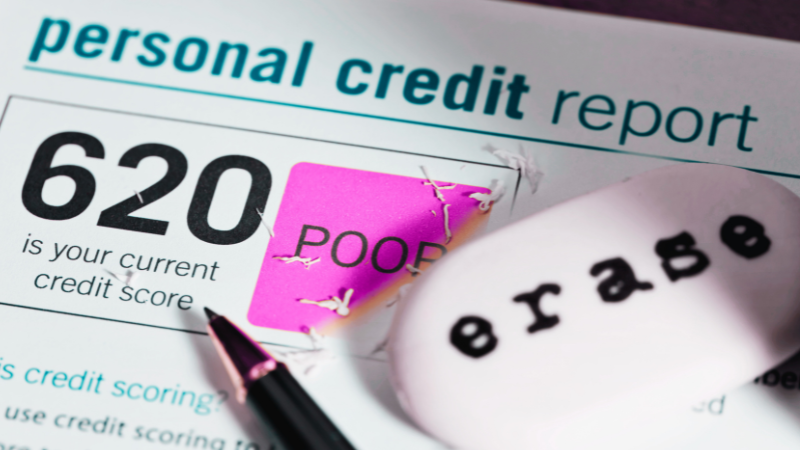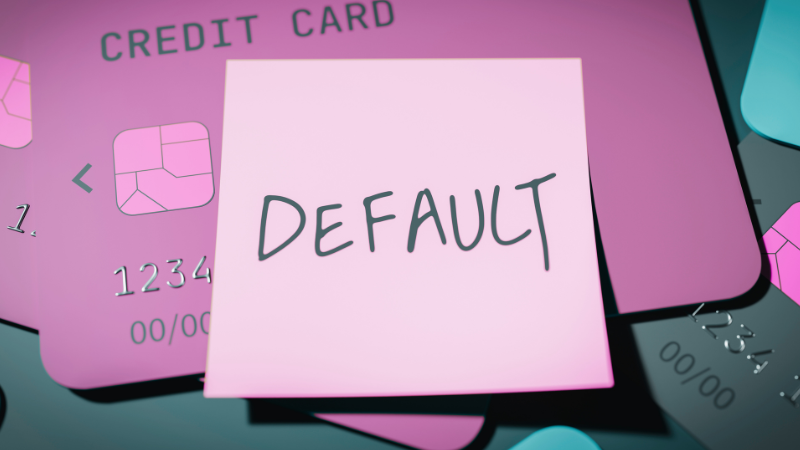How to Get a Mortgage with Bad Credit: Simple Guide


Think bad credit will stop you from buying a home? You might be surprised to learn that getting a mortgage with bad credit is possible.
Many lenders specialise in mortgages for people with poor credit ratings. The process can be more challenging for those with less-than-perfect financial records.
Bad credit makes lenders see you as a higher risk borrower who might struggle with mortgage payments. You’ll face higher interest rates and need to put down a larger deposit, typically 20-25% instead of the usual 5-10%. But don’t let this discourage you from pursuing homeownership. Your credit report typically shows negative items for about six years. Understanding your current position is a vital first step.
The smart move is to check your standing before applying for any mortgage. Mortgageable offers a free Equifax Credit Report as part of its service, with no obligation to proceed. Something worth considering. Late payments on credit cards, utility bills, and other contracts can hurt your score. Remember that building better credit takes time and dedication.
This piece covers everything about getting a mortgage with less-than-perfect credit. You’ll learn what impacts your score and practical ways to boost your approval chances.
What Does Bad Credit Really Mean?
Bad credit isn’t as simple to define as you might think. Lenders use different criteria to assess borrowers, so there’s no one-size-fits-all definition. Despite this, most lenders look for specific financial behaviors that signal higher risk.
Common reasons for a low credit score
Your credit score doesn’t just drop randomly. Here are the most common things that can hurt your credit rating:
- Missed or late payments: Not paying bills, credit cards, or loans on time affects your score a lot and stays on your report for years
- Defaults and CCJs: Your credit profile takes a big hit from defaulting on payments or getting County Court Judgments
- High debt levels: Having too much debt compared to your credit limits shows that you might be struggling financially
- Limited credit history: Not having any credit history can actually give you a low score because lenders can’t see if you’re good at borrowing
- Multiple credit applications: Applying for lots of credit in a short time makes it look like you’re desperate for money
Bankruptcy filings, Individual Voluntary Arrangements (IVAs), and Debt Relief Orders leave long-lasting marks on your creditworthiness.
How lenders view bad credit
Mortgage lenders need to get a full picture of how you handle money. They look at your credit history to see if you know how to manage your finances consistently.
A low credit score tells lenders you’re a higher risk. So they might:
- Charge higher interest rates to cover their risk
- Ask for bigger deposits from people with credit issues
- Set stricter loan-to-value limits
- Turn down applications completely
Some lenders focus on “bad credit mortgages” for people with poor credit histories. These products help people buy homes, but they usually cost more than standard mortgages.
Lenders understand that money problems sometimes happen for reasons beyond your control, like losing your job or getting sick. Adding a “notice of correction” to your credit report to explain past issues might help your case.
Why credit scores vary by agency
Credit scores can be really confusing because they’re different depending on which agency you check with. The UK has three main credit reference agencies (CRAs): Experian, Equifax, and TransUnion.
Each agency works differently:
- They use their own scoring ranges and methods
- They might have slightly different information about your finances
- They update their information at different times
A score of 600 means something different everywhere you look. Equifax calls it “good,” TransUnion says it’s “fair,” and Experian rates it as “poor”. Experian’s scale runs from “very poor” (0-560) all the way up to “excellent” (961-999).
These differences happen because banks and lenders don’t have to report to every agency. They might only report to one or two instead of all three. It takes 4-6 weeks for updates to show up in credit reports, and some lenders update daily, while others take longer.
The quickest way to get a complete picture of your finances is to check your score with all three agencies before applying for a mortgage.
How Bad Credit Affects Your Mortgage Options
Bad credit won’t stop you from buying a home, but it will change your mortgage options. Lenders adjust their offerings to protect themselves from risk when they see credit problems in your history. This usually means you’ll pay more as a borrower.
Higher interest rates and larger deposits
Your mortgage costs take the biggest hit from poor credit. Interest rates for bad credit mortgages are usually 2-3% higher than what good credit applicants get. Let’s say standard mortgage rates are at 4% – you might end up paying 6% or more with credit issues. This means higher monthly payments and a much larger total repayment over your mortgage term.
You’ll also need to put down more money up front. Good credit borrowers can get mortgages with just 5-10% down, but bad credit often requires 20-25%. Credit problems that are more serious need even bigger deposits:
- Bankruptcy or repossession (5+ years ago): 30-40% deposit
- IVA (2 years ago): 15-30% deposit
- Missed mortgage payment (within 1 year): 10-15% deposit
- Minor credit issues (late phone payments): 5-10% deposit
The more recent and serious your credit problems are, the more money you’ll need to put down to offset what lenders see as risk.
Loan-to-value limits for low credit score mortgages
Loan-to-value (LTV) ratios are tied to deposit requirements and are restricted for people with credit issues. While excellent credit histories might qualify for 95% LTV mortgages, poor credit often caps out at 85% LTV. Many lenders won’t go above 70-80% LTV for applicants with serious credit problems.
Lenders worry about repossession. If you default, they must sell your property – usually below market value and with extra costs. A £280,000 home might only bring in £250,000 or less. High LTV loans could mean losses, while lower LTV protects the lender.
This risk assessment explains why LTV limits get stricter with worse credit issues. Each percentage point lower in LTV gives lenders more protection against possible default.
Why some lenders still approve bad credit applicants
Many lenders focus on bad credit mortgages. These “specialist” or “subprime” lenders know that credit problems don’t always predict future payment behavior, especially when:
- Credit issues happened over 12 months ago
- Life events caused the problems rather than poor money management
- The debt is relatively small (under £1,000 for CCJs or £2,500 for defaults)
- Your financial situation has gotten better
Unlike mainstream lenders with automated systems, specialist lenders look at each case individually. They assess your overall financial picture, including steady income and how you handle debt now, rather than just your credit score.
Bad credit mortgages are also profitable. Higher interest rates and fees balance out the increased risk, making these loans worthwhile for lenders who know how to manage that risk.
Note that your specific situation determines your mortgage options. Each lender has their own rules about the age, type, and severity of credit issues they’ll accept.

Steps to Improve Your Credit Before Applying
You need time to build a better credit score. Making smart moves can help you get mortgage approval despite past money troubles. The best results come from starting these improvements six months before you apply.
Register to vote and update your address
Your first step should be getting on the electoral roll. This easy task helps lenders confirm who you are and where you live. Your Experian credit score can jump up to 50 points just by showing up on the electoral roll at your current address. Most people don’t know this – only 45% realise it affects their credit score.
The UK law requires everyone to register for elections, whether they plan to vote or not. Your credit report usually shows these details within 30 days. December 1st is the update date if you register during the annual canvass from August to November. Living in temporary housing? You’ll look more stable to lenders if you register at a permanent address, like your parents’ home.
Pay bills and debts on time
Regular payments are the lifeblood of better credit. A single missed payment can stay on your report for six years.
Direct debits are the quickest way to avoid missing payments by accident. Paying bills on time shows mortgage lenders they can trust you. Your credit score might improve if you keep credit card balances under 25% of your limit.
Fix errors on your credit report
Small mistakes on your credit report can hurt your chances of getting a mortgage. A wrong address could lead to rejection.
Take time to check these details on your report:
- Personal information (name, address)
- Account details and payment history
- Credit limits and balances
- Public records (such as CCJs)
You should contact both the credit reference agency and the lender to dispute any errors. Make sure you send proof with your claim. Most cases get sorted in 30 days, but it might take 45 days if more documents are needed.
Avoid multiple credit applications
The months before your mortgage application are crucial. Each new credit application leaves a “hard search” mark on your file. Lenders think you’re desperate for money if they see lots of searches close together.
Money experts say you should avoid applying for credit at least six months before asking for a mortgage. This rule becomes extra important with certain loans. Some mortgage lenders won’t even look at your application if you’ve used payday loans in the last year.
These four steps will boost your chances of getting a mortgage approved, even if you’ve had credit problems before.
Smart Strategies to Boost Your Approval Chances
You can do more than just improve your credit score to boost your chances of getting a mortgage despite past money troubles. Lenders look at risk when they review applications from people with credit issues, so these practical approaches directly tackle their concerns.
Save for a bigger deposit
A larger deposit substantially reduces the risk for lenders when they look at bad credit applications. You should target at least 20-30% of the property value to get better rates and improve your chances of approval. People with serious credit issues, like bankruptcy or repossession, might need to put down 25-40%.
Your substantial deposit shows your financial commitment and reduces your lender’s risk exposure. The lower loan-to-value ratio makes potential mortgage providers see you as less risky. Yes, it is worth noting that even £100 more than a standard threshold (like 20% instead of 19.9%) can affect both your acceptance odds and borrowing capacity.
Think over a joint application
Teaming up with someone who has better credit might help, but lenders usually look at the worst credit profile between joint applicants. Your partner’s excellent credit won’t automatically cancel out your credit issues, though combining your incomes could still help with affordability checks.
Joint mortgages work even when one person has credit problems. The age and severity of credit issues matter most – recent bankruptcies create bigger obstacles than older, settled defaults.
Use a guarantor if possible
A guarantor mortgage lets someone (usually a parent or close relative) agree to cover your mortgage payments if you can’t. This setup might help you get approved even with a poor credit history or a smaller deposit.
Guarantors must either:
- Secure the mortgage against their own property
- Place cash in a special savings account held by the lender
Everyone involved should think carefully about this option since your guarantor’s home could be at risk if payments aren’t managed properly.
Apply for an Agreement in Principle
An Agreement in Principle (AIP), also known as a Decision in Principle, helps you check your potential borrowing amount before making a formal application. The soft credit check won’t affect your credit score.
Getting an AIP offers several benefits:
- Shows sellers and estate agents you’re serious about buying
- Helps spot potential issues before the full application
- Gives you confidence about your borrowing capacity
Most AIPs last about 90 days, giving you enough time to find a property while knowing your borrowing limits. Though it doesn’t guarantee mortgage approval, this step helps identify any potential issues early in your home-buying trip.
Tools and Resources to Help You Plan
You need specific tools to plan your mortgage application that show you exactly where you stand financially. A good deposit and a better credit score are important, and these resources will help you know your position better.
Use a mortgage calculator
Mortgage calculators help you learn what you can actually afford. These tools show your possible monthly payments based on different interest rates, loan amounts, and repayment terms. Bad credit mortgage calculators are also available. They factor in higher interest rates that usually come with lower credit scores. Why not use Mortgageable’s free mortgage calculator?
Note that these calculators offer guidance, not guaranteed figures. Try different scenarios to see how various interest rates change your monthly payments. To cite an instance, a £100,000 mortgage over 20 years at 2% costs £506 monthly. The same mortgage at 6% increases to £660 monthly.
Check your credit score regularly
Getting your credit reports from all three major UK agencies—TransUnion, Experian, and Equifax—is vital before you apply for a mortgage. You can get these reports free: TransUnion through MoneySavingExpert Credit Club, Experian through their free service, and Equifax through Clearscore.c
Look carefully for errors in these reports. Even small mistakes can affect your chances of approval. Your checks show up as “soft searches” and don’t hurt your score, so check as often as you need.
Understand your borrowing limits
You should know how much you can borrow before you start looking for houses. Lenders look at your monthly expenses, not just your salary. Bad credit applicants usually need a bigger deposit—often 20-25% of the property value. This can go up to 30-40% if you have serious credit issues.
Affordability calculators that look at your income, expenses, and credit situation can help. These tools help you set realistic expectations and stop you from applying for mortgages you can’t get. Getting an Agreement in Principle also shows your potential borrowing limits without affecting your credit score.
Conclusion
Bad credit makes getting a mortgage harder, but not impossible if you prepare well and know what to expect. This piece shows how different lenders view risk in their own ways. Most will charge higher interest rates and ask for bigger deposits when they see credit problems.
Your credit history shows how reliable you are with money, and this story can change. Most negative marks disappear from your report after six years. You can make things better by taking positive steps. Getting on the electoral roll, paying bills on time, and handling your current credit well will help rebuild your financial standing.
You can boost your chances of approval by saving a bigger deposit, looking into guarantor options, or getting an Agreement in Principle before you start house hunting. Each extra percent you put down as a deposit makes you less risky to lenders and gets you better terms.
The road to owning a home with credit issues needs patience. Free services from major agencies let you keep an eye on your credit report. Special calculators help you figure out how much you can borrow and what your monthly payments might be.
Past money troubles don’t have to stop your future plans. Many people get mortgages even with credit problems in their past. The secret is to show you’re stable now and can handle money well. Start getting ready at least six months before you apply. Keep making improvements and talk to specialist lenders who look at each case personally instead of just using automated systems.
Bad credit might change your path to getting a mortgage, but it won’t stop you. With focus, good planning, and the right help, you can still become a homeowner despite past financial problems.















